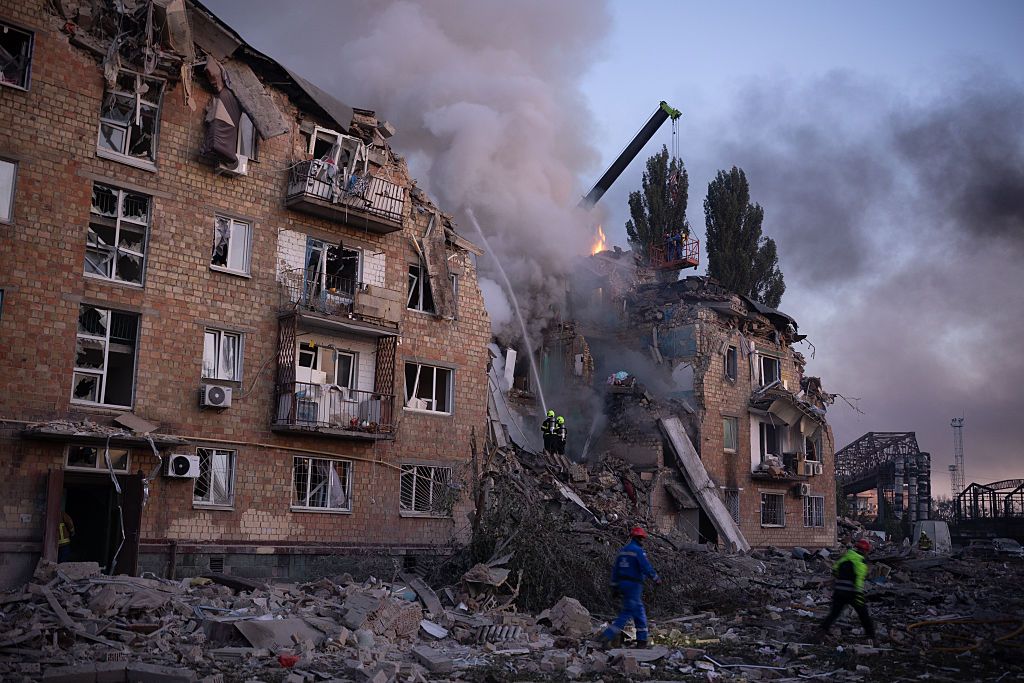White House equates Russian, Ukrainian strikes after Moscow attack killed 23 in Kyiv

White House Press Secretary Karoline Leavitt drew a parallel between a recent Russian deadly attack on Kyiv and Ukrainian strikes on Russian oil facilities during a briefing in Washington on Aug. 28.
Leavitt's comments came after Moscow's forces launched another mass drone and missile attack on Ukraine overnight on Aug. 28, targeting Kyiv. The attack hit residential areas, killing at least 23 people, including four children, and injuring 63 others, including 11 children.
When asked about the attack, the White House spokesperson said that U.S. President Donald Trump "was not happy about this news, but he was also not surprised."
Leavitt said that "perhaps both sides of this war are not ready to end it themselves," referring to Ukraine's strikes on Russian infrastructure sustaining Moscow's war effort.
"Russia launched this attack on Kyiv. And likewise, Ukraine recently dealt a blow to Russia’s oil refineries. They have taken out, as a matter of fact, 20% of Russia’s oil refinery capacity over the course of their attacks throughout the month of August," she said.
"The president wants it to end, but the leaders of these two countries need it to end and must want it to end as well."
Kyiv has targeted dozens of refineries, oil depots, and military-industrial sites since the start of Russia's full-scale invasion in 2022 to disrupt Moscow's war effort. In the meantime, Russia's recent attacks on Ukraine's capital hit residential buildings, killing and injuring dozens of civilians.
While multiple European leaders condemned Moscow's latest deadly attack amid ongoing peace efforts, Trump himself did not comment on the strike.
Previously, the U.S. president has consistently said that he wants to end the war to prevent further deaths "on both sides," while accusing Ukraine of sharing the blame for the Russian invasion.
Despite his meeting with Trump in Alaska earlier this month, Russian President Vladimir Putin has shown no signs of easing his assault on Ukraine. He returned from the summit without facing any new sanctions.
German Chancellor Friedrich Merz suggested on Aug. 28 that a proposed bilateral meeting between President Volodymyr Zelensky and Putin will not take place.
This is "different from what was agreed between President Trump and President Putin last week when we were in Washington together," Merz said following the attack.











